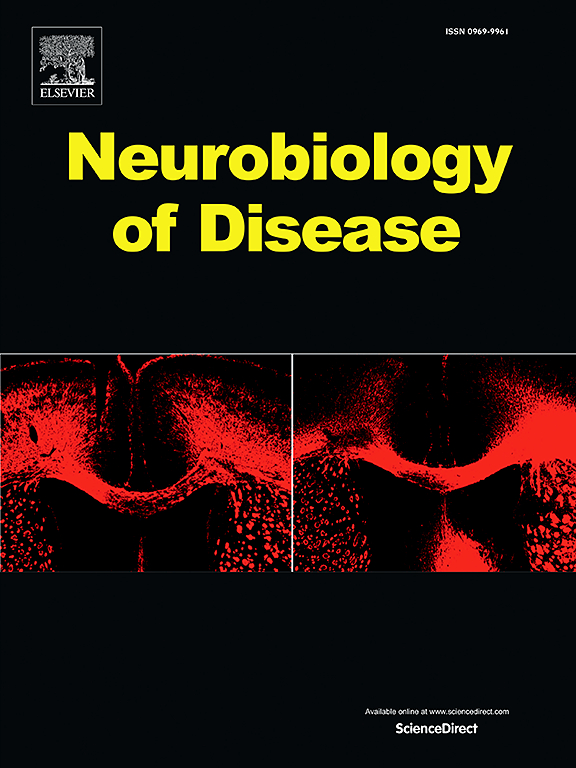Long-term hippocampal low-frequency stimulation alleviates focal seizures, memory deficits and synaptic pathology in epileptic mice
IF 5.6
2区 医学
Q1 NEUROSCIENCES
引用次数: 0
Abstract
Background
Mesial temporal lobe epilepsy (MTLE) is a prevalent form of focal epilepsy characterized by seizures originating from the hippocampus and adjacent regions. Neurostimulation presents an alternative for surgery-ineligible patients with intractable seizures. However, conventional approaches have limited efficacy and require refinement for better seizure control. While hippocampal low-frequency stimulation (LFS) has shown promising seizure reduction in animal studies and small clinical cohorts, its mechanisms, sex-specific outcomes, and long-term effects remain unknown.
Objectives
We aimed to identify the antiepileptic and cognitive outcomes and potential underlying mechanisms of long-term hippocampal LFS in chronically epileptic male and female mice.
Methods
We used the intrahippocampal kainate mouse model replicating the features of MTLE: spontaneous seizures, hippocampal sclerosis, and memory deficits. During the chronic phase of epilepsy, we applied 1 Hz electrical LFS in the sclerotic hippocampus 6 h/day, four times/week for 5 weeks and examined its effects on epileptiform activity, spatial memory, and kainate-induced pathological features at cellular and synaptic levels.
Results
Long-term hippocampal LFS consistently diminished focal seizures in epileptic male and female mice, with seizure reduction extending beyond the stimulation period. Additionally, long-term LFS relieved spatial memory deficits and reversed pathological modifications at perforant path-dentate granule cell synapses shortly after stimulation. LFS had no significant effect on secondarily generalized seizures, anxiety-like behaviour, neurogenesis, hippocampal sclerosis, or presynaptic vesicles in perforant path fibres.
Conclusion
These findings provide clinically relevant insights into the seizure type-specific effects of hippocampal LFS, which, alongside synaptic and behavioural improvements, could contribute to enhanced seizure control and quality of life in MTLE patients.

长期海马低频刺激减轻癫痫小鼠局灶性癫痫发作、记忆缺陷和突触病理
中内侧颞叶癫痫(MTLE)是局灶性癫痫的一种常见形式,其特征是癫痫发作起源于海马和邻近区域。神经刺激为不适合手术的顽固性癫痫患者提供了另一种选择。然而,传统方法的疗效有限,需要改进以更好地控制癫痫发作。虽然海马低频刺激(LFS)在动物研究和小型临床队列中显示出有希望减少癫痫发作,但其机制、性别特异性结果和长期效果仍不清楚。目的:研究慢性癫痫雌雄小鼠海马LFS的抗癫痫和认知效果及其潜在机制。方法采用复制MTLE特征的海马内盐小鼠模型:自发性癫痫发作、海马硬化和记忆缺陷。在癫痫的慢性期,我们对硬化海马施加1 Hz电LFS,每天6小时,每周4次,持续5周,并在细胞和突触水平上检测其对癫痫样活动、空间记忆和盐酸盐诱导的病理特征的影响。结果长期海马LFS持续减少癫痫小鼠局灶性癫痫发作,且癫痫发作减少持续到刺激期之后。此外,长期LFS缓解了空间记忆缺陷,并在刺激后不久逆转了穿孔通路-齿状颗粒细胞突触的病理改变。LFS对继发性全身性癫痫发作、焦虑样行为、神经发生、海马硬化或穿孔路径纤维的突触前囊泡无显著影响。结论这些发现为海马LFS的癫痫发作类型特异性效应提供了临床相关的见解,与突触和行为的改善一起,可能有助于增强MTLE患者的癫痫发作控制和生活质量。
本文章由计算机程序翻译,如有差异,请以英文原文为准。
求助全文
约1分钟内获得全文
求助全文
来源期刊

Neurobiology of Disease
医学-神经科学
CiteScore
11.20
自引率
3.30%
发文量
270
审稿时长
76 days
期刊介绍:
Neurobiology of Disease is a major international journal at the interface between basic and clinical neuroscience. The journal provides a forum for the publication of top quality research papers on: molecular and cellular definitions of disease mechanisms, the neural systems and underpinning behavioral disorders, the genetics of inherited neurological and psychiatric diseases, nervous system aging, and findings relevant to the development of new therapies.
 求助内容:
求助内容: 应助结果提醒方式:
应助结果提醒方式:


